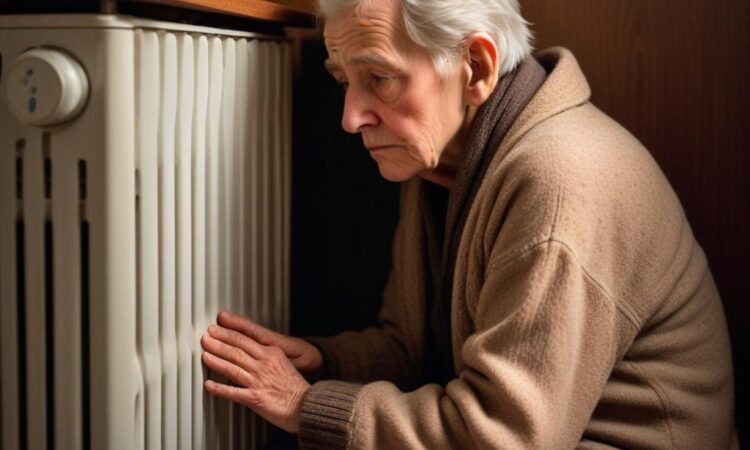Unite Begins Legal Action to Stop Winter Fuel Cuts
The Unite union has launched legal action against the government, arguing that the planned cuts to winter fuel payments for pensioners were not properly assessed for their potential impact on the health and well-being of vulnerable older adults. The union contends that the government failed to adequately consider the evidence demonstrating a direct link between access to affordable heating and the health outcomes of pensioners, particularly those with pre-existing health conditions. This legal challenge marks a significant escalation in the ongoing dispute over the government’s austerity measures affecting the elderly.
Unite’s general secretary, Sharon Graham, stated that the union will not stand idly by while the government jeopardizes the health and safety of pensioners through what she described as “reckless and ill-considered cuts.” She emphasized that the union has a responsibility to protect its members and will utilize all available legal avenues to challenge these policies. The union’s legal team has compiled extensive evidence, including medical reports, statistical data on excess winter mortality rates among pensioners, and expert testimony, to support its claim that the government’s impact assessment was fundamentally flawed.
The government’s decision to cut winter fuel payments has been widely criticized by numerous charities and advocacy groups for the elderly. They argue that the cuts disproportionately affect the most vulnerable members of society, those already struggling to make ends meet and who are at increased risk of health complications due to cold weather. Many have pointed to the potential increase in hospital admissions and deaths directly linked to hypothermia and other cold-related illnesses as a direct consequence of the cuts. The government’s response has largely centered on claims that the cuts are necessary to control public spending and that alternative support mechanisms are available to those in need.
Unite’s legal action focuses on the government’s alleged failure to adhere to its own guidelines regarding impact assessments for policies affecting vulnerable groups. The union argues that the government’s assessment was inadequate in its scope and methodology, failing to adequately consider the long-term health implications of the cuts. Specifically, the union points to a lack of consideration for the cumulative effect of various austerity measures on pensioners’ overall financial well-being, leading to a greater risk of fuel poverty and resulting health problems. The legal challenge will likely involve detailed examination of the government’s decision-making process and the evidence it considered.
The legal battle is expected to be lengthy and complex, involving extensive legal arguments and potentially expert witness testimony on the health effects of cold exposure and fuel poverty among the elderly. The outcome of the case will have significant implications not only for the pensioners directly affected by the winter fuel cuts but also for future government policy decisions impacting vulnerable populations. If Unite is successful, it could set a precedent for future legal challenges to austerity measures that are argued to disproportionately harm vulnerable groups without sufficient consideration of their potential impact on health and well-being.
The union has stressed that this legal action is not simply about financial compensation but about upholding the government’s duty of care towards its most vulnerable citizens. They are arguing for a fundamental shift in how the government assesses the impact of its policies on health, advocating for a more holistic and comprehensive approach that takes into account the interconnectedness of social, economic, and health factors.
In the meantime, Unite is continuing its campaign to raise public awareness of the issue and to pressure the government to reconsider its position on the winter fuel cuts. They are working with other charities and advocacy groups to provide support and assistance to pensioners affected by the cuts and to ensure their voices are heard. The union remains committed to defending the rights of its members and ensuring that pensioners are treated with the dignity and respect they deserve.
The government’s response to the legal challenge remains to be seen. However, the case highlights the growing tension between the government’s commitment to fiscal responsibility and its obligation to protect the health and well-being of its most vulnerable citizens. The outcome of the case could have far-reaching implications for future policy decisions concerning social welfare and the rights of older adults.
This legal action represents a significant development in the ongoing debate about the impact of austerity measures on vulnerable populations. The outcome will have implications far beyond the immediate issue of winter fuel payments, potentially influencing future policy decisions and legal challenges to government actions affecting vulnerable groups.
The complexities of the case are considerable, encompassing issues of public health, social welfare, and legal interpretation. The detailed legal arguments and evidence presented will undoubtedly be scrutinized closely, not only by the courts but also by policymakers and the public. The case is expected to attract considerable media attention and public debate, given the sensitive nature of the issue and the significant implications for the lives of many elderly people.
The Unite union’s determination to pursue legal action underscores the importance of protecting the health and well-being of pensioners, and the potential implications for future government policy. The case highlights the need for a more nuanced approach to assessing the impact of austerity measures, acknowledging the long-term health consequences for vulnerable populations. The ongoing legal battle promises to be a significant test of the government’s commitment to the well-being of its older citizens.

